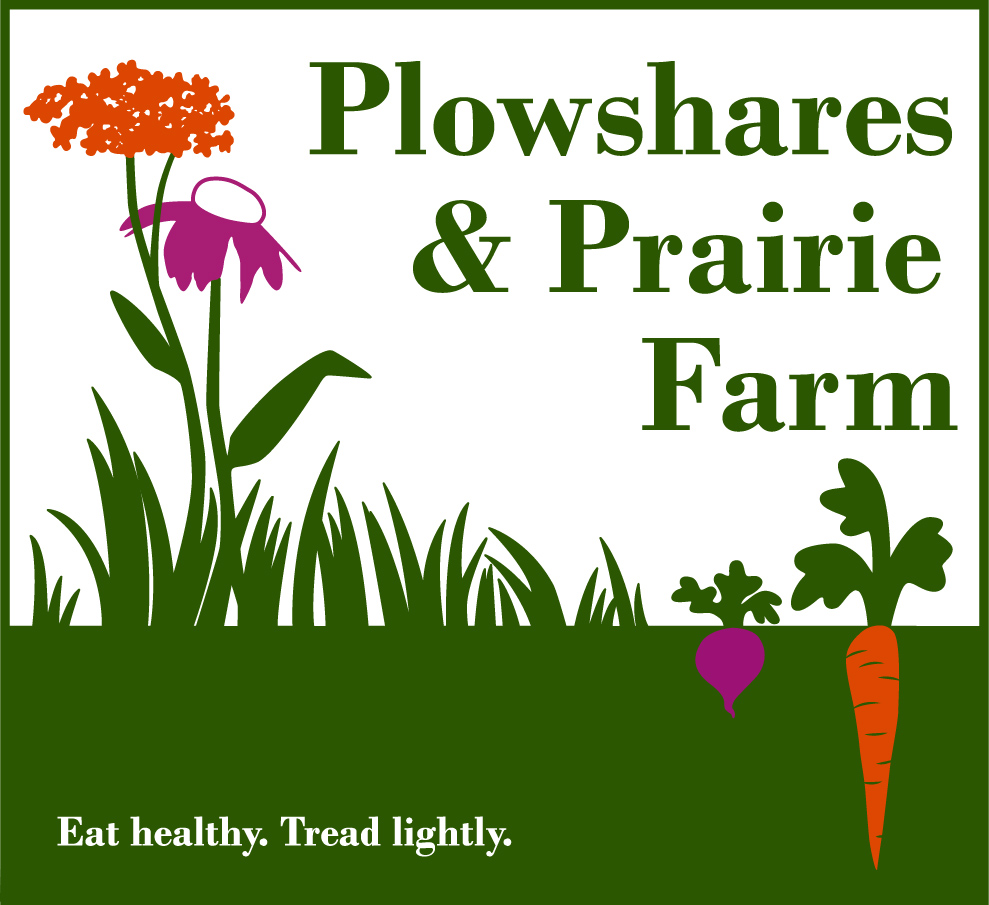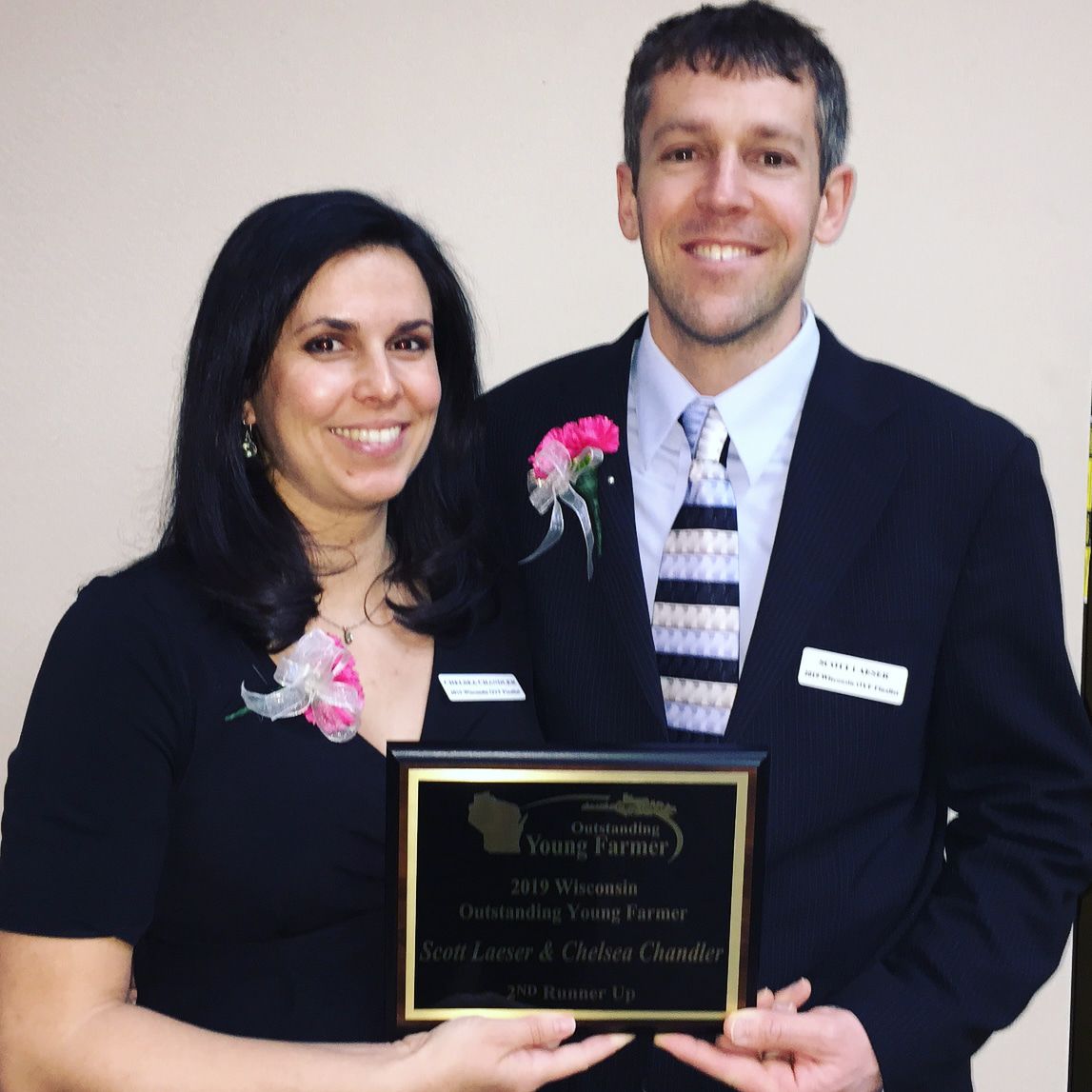Sustainability
Eat healthy. Tread lightly.
The name of our farm, Plowshares & Prairie, reflects our commitment to pairing sustainable food production with strong conservation work.
Sustainability is embedded in everything we do at the farm. By becoming a CSA member or hosting your event in our barn, you are supporting local farmers and our efforts to not just grow healthy food, but to take care of this beautiful place for future generations.
Farm Philosophy
Our produce is organically grown, and we are certified organic by MOSA, a USDA accredited certification agency. We do not use synthetic fertilizers or toxic pesticides in our food production or prairie restoration. Rather, we prefer to use natural techniques such as crop rotation, cover cropping, and mulching to build up the healthy soils that lead to healthy plants. We take Eliot Coleman's advice to heart, striving to farm in a way that is "plant-positive" rather than "pest-negative", creating the conditions to foster healthy, resilient plants that are capable of fighting off pests. We hit the fields, instead of the gym, to get some exercise outside while tackling weeds and taking care of our plants using our hands.
We strive to use as many on-farm inputs as possible and we are restoring and improving the wetlands and prairies on our property while using them to mitigate the impacts of crop production. It is this holistic approach to land management and food production that we are excited about, and the fresh, organically grown produce that comes with it.
Off the farm, we also work for a statewide environmental nonprofit, where we work to protect clean water (Scott) and mitigate climate change (Chelsea). Of course, keeping our water clean and minimizing our carbon footprint are integrated in how we work and live at the farm.
We’re proud to be 2nd Runners Up for the 2019 Wisconsin Outstanding Young Farmer (OYF) award. This award for farmers under 40 is based on progress in agricultural career; extent of soil and water conservation practices; and contribution to community, state, and nation. See the article “Seibels named Wisconsin Outstanding Young Farmers” by Ed Zagorski of the Watertown Daily Times for more info.
Check out this write-up on the FairShare CSA Coalition website about all that we do to care for our farm: “Plowshares & Prairie: Celebrating Earth Day Everyday.”
To learn more about our farming journey, check out this 5 Minutes on the Farm episode:
Land Management
History
Before European settlement, Southwest Wisconsin was a mixture of prairie, oak savanna, oak forest, and wetlands. Fire was a major influence on the plant and animal communities. This ecosystem gave us the beautiful, deep topsoil that makes our farm and many others in the area so productive. As the area was settled and agriculture expanded, farm fields replaced prairies and wetlands and more forest grew up without fire to set the trees back. Plant species from Europe and elsewhere were introduced and changed the landscape further, giving us the mixture of forest, grassland, farmland, and wetlands we have today.
Prairie Remnant
While much of our farm has been either cultivated or grazed for nearly 150 years, one small, steeper hillside has never been plowed and only periodically grazed. That has left us with a beautiful and unique remnant prairie, which hosts many native species that are much less common now. One important focus of our farm is maintaining and improving this prairie remnant and the other land on our farm that is not actively cultivated.
Conservation Benefits
We think of our farm as one big ecological system. While we may not be actively farming other parts of the property, they contribute considerably to our food production. Our wetland filters any runoff from our fields, capturing soil and nutrients that would otherwise make their way into our trout stream. We harvest grass and other biomass for compost, taking a small amount of nutrients from a large area to keep our cultivated land productive. Our animals feed on grasses, shrubs, and insects wherever they graze, and some of their waste is composted before it too is returned to our farm fields to help fertilize our crops. The bees that visit our prairie flowers help pollinate our fruits and vegetables, and provide us with delicious honey.
Our goal is to use the resources throughout our farm to create the absolute best growing conditions possible for our produce. However, using those resources is done with an eye towards the benefits that uncultivated land provides for native plants and wildlife as well as our produce. While our forests, wetlands, and prairies occasionally provide habitat for deer, turkeys, and rabbits that might love to eat our crops, we believe the benefits these ecosystems provide far outweigh any harm that an occasional hungry herbivore inflicts. We also believe it is our responsibility to be good stewards of the land, and if it is healthy, our produce will be healthy.
Energy
We believe in managing our farm holistically. In addition to our work to sustainably manage the land, we also work to reduce our energy demand and use renewable energy.
In 2014, we installed a 6 kW solar photovoltaic system on our barn roof. This solar array generates much of the electricity that we use in our barn for our farming operations and in the house. Any excess electricity generated is sent back to the grid.
As part of a big house remodel in 2019, we added a geothermal system, also known as a ground-source heat pump. This efficient system uses the temperature difference between the air and ground to heat or cool the house. We also save energy and cut costs by investing in energy-efficient lighting and appliances, and insulation. This has been a big improvement to our old farm house - both in terms of comfort and our environmental impact.





